Less Talk, More Action: These 5 Indians Are Creating Solutions, Not Just Discussing Problems
Amongst us are some inspiring people who never waited for the problems to become too big and unsolvable to come up with solutions.
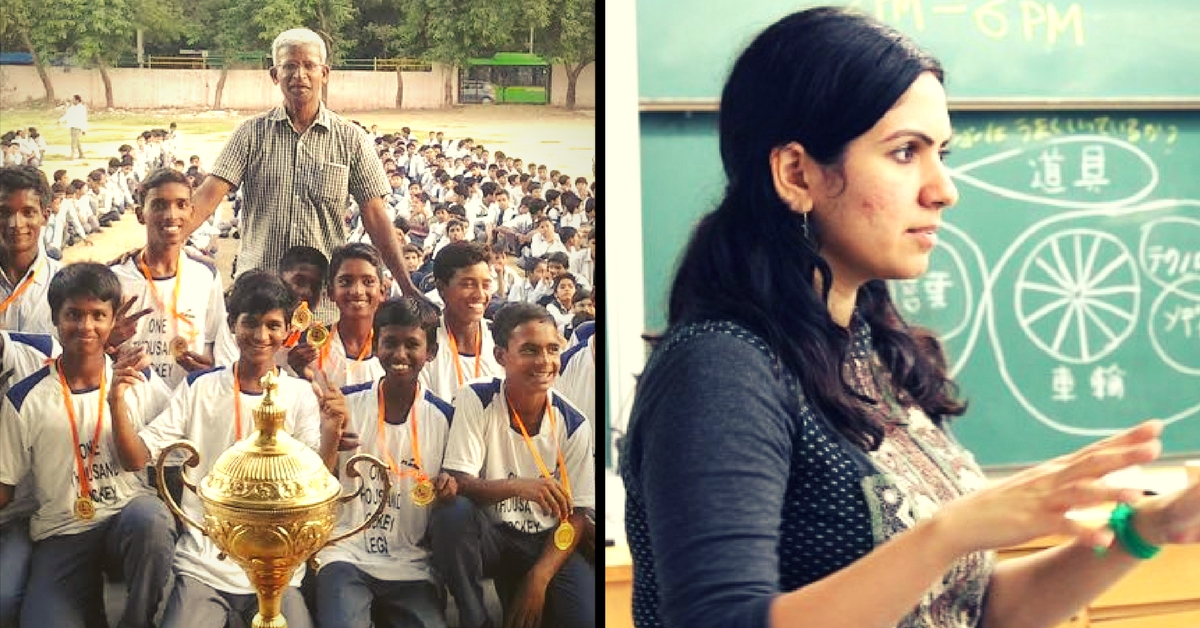
Somebody once said, “Act or accept.”
And the quote seems most accurate in times like these when India is struggling with varying issues that we need to fight against. When women are no longer safe on streets, when farmers are tired of trying to get their voices heard, when cities are slowly getting buried under the burden of uncontrolled traffic – the time is now and it is calling out for people to notice and take action before it’s too late.
It is clear, now more than ever, that pure, undiluted action is the need of the hour – not twitter hashtags or angry comments on social media!
In its latest Jaago Re campaign, Tata Tea is bringing the focus back on such action. The aim behind the campaign is to create and enable activists to stand strong and shape change with focus on issues like farmer suicides, city infrastructure, women safety and sports development.
The basic problem being highlighted in the campaign, and in the ad below, is that that society needs to kill the problem at the root before it rises. And the people who do it are referred to as pre-activists.
This is a call to wake up before the alarm rings in the form of another rape in the city and another national champion losing a medal. This is a call to inspire and be inspired and move towards a world that does not sit back and wait for the next huge disaster.
Amongst us are some inspiring people who never waited for the problems to become too big and unsolvable to come up with solutions. They started at the slightest indication of trouble and went on to take larger steps, crossing innumerable hurdles and breaking taboos and stereotypes, to affect real lives. From giving farmers a way to reach markets without middlemen, to growing trees at a large scale to change the face of urban landscape, here is a glimpse at their work.
1. Abhijeet Falke, a 30-year-old IT professional from Pune, is on a mission to bring about a revolution in the farming sector in Maharashtra:
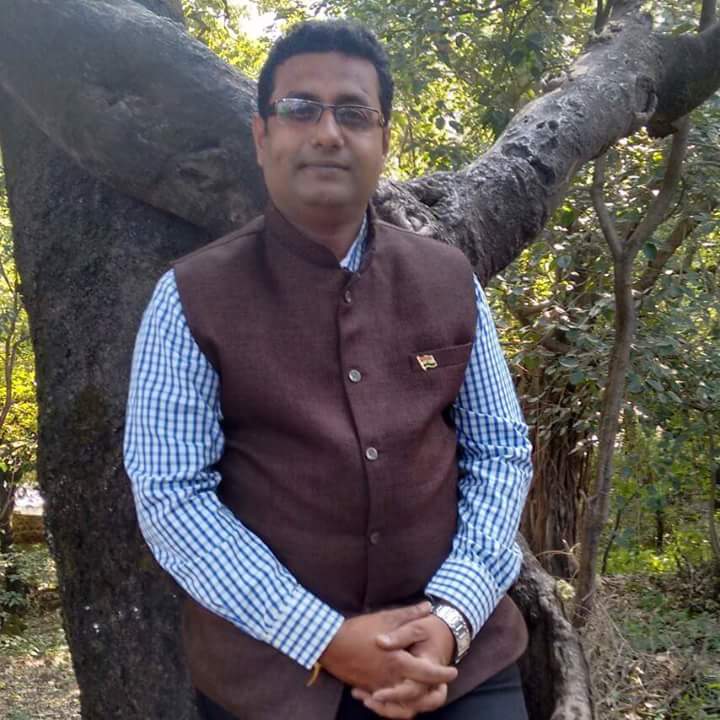
Abhijeet was immensely moved when he heard the story of Aparna Malikar, a farmer widow from Yavatmal district of Maharashtra, on the show Kaun Banega Crorepati. In the episode, Aparna spoke about how her husband committed suicide because he was unable to repay a huge loan. Abhijeet decided to do something about the situation, and founded Apulkeee Samajik Sansthan with the support of his wife and friends. His organization now works on helping farmers increase production and lower production costs, providing a market link to farmers by introducing direct sale without middlemen. It also provides psychological support for the farmers. Apulkee’s two-day residential workshops for farmers includes expert lectures on subjects of soil conservation, water management, use of advanced techniques in organic farming, etc. So far, Apulkee has conducted nine agriculture workshops through which almost 6,900 farmers have been trained.
2. Jasmeen Patheja is encouraging women to fight fear and giving them a platform to raise their voices:
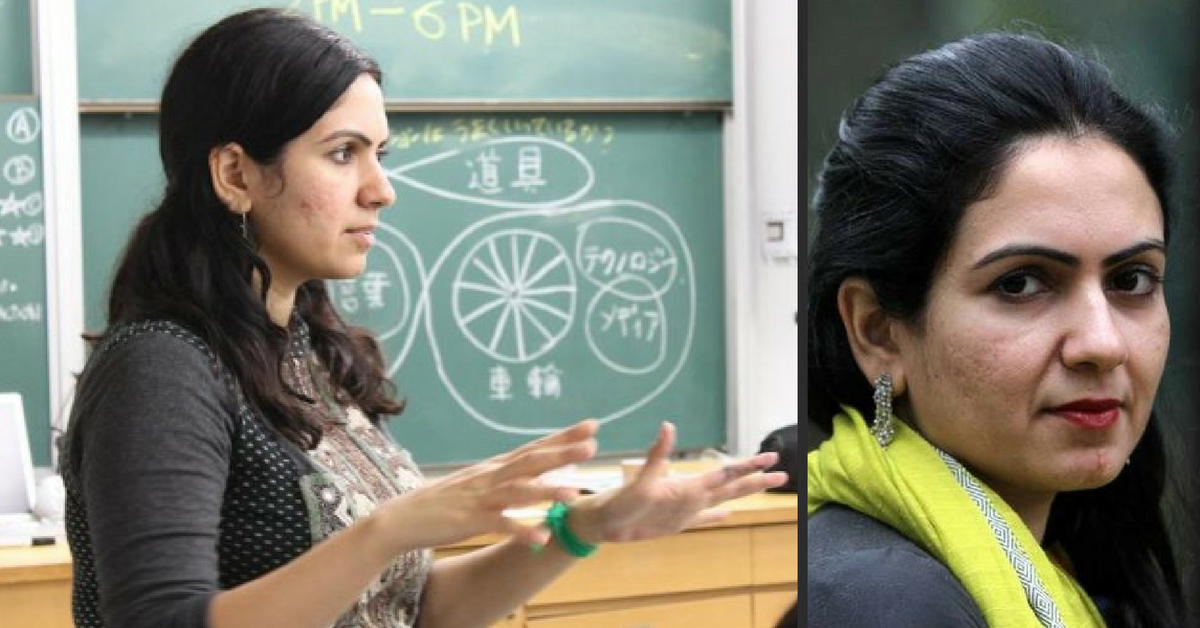
Jasmeen started Blank Noise project, a volunteer-led project that grew out of Bengaluru, and has been working to tackle street harassment and change public attitudes towards sexual violence since 2003. In its latest campaign called #WalkAlone, Blank Noise asked women across the country to break their silence and walk alone to fight the fear of being harassed on the streets. Born and brought up in Kolkata, Jasmeen was always passionate about using her creativity to make a difference. Blank Noise was born as a result of her experience of being harassed on the streets even as a young girl, and the frustration caused by public apathy. By drawing attention to street harassment through this project, she sought to transform attitudes towards an often-trivialised problem in India – “eve-teasing.” From advocating for effective legal mechanisms to staging theatrical public protests, strategies employed by Blank Noise help mobilise citizens against sexual harassment in public spaces.
3. Arumugam has dedicated his life to creating well-trained hockey players and spreading awareness about the game:
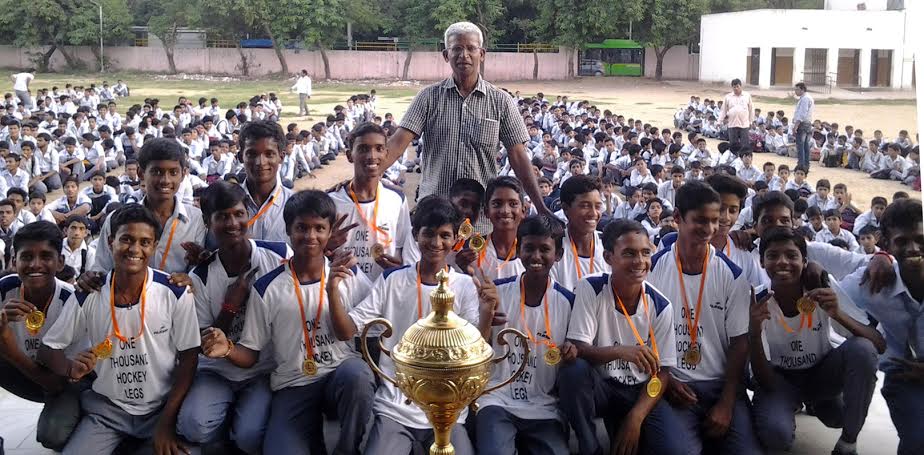
When the Indian hockey team failed to qualify for the 2008 Olympics, Arumugam decided it was time to get to the root of the problem and teach young children to play. So he quit his well-paying job, and started an NGO called Hockey Citizens Group that trains students in government schools. He has also launched a programme called One Thousand Hockey Legs in Delhi to bring children together for this sport. Arumugam began to approach government schools because, according to him, the students there needed more intervention. Throughout the year, the training is organised on weekends so that studies are not interrupted, and extensive practice is done during the long stretch of holidays in summer and winter. He brings together coaches from different parts of the country to teach these children. Some of the students from these school teams are now district-level players.
4. Jambay Gyaltsen Chetan, a 33-year-old from Arunachal Pradesh, has been training underprivileged children in badminton in a Delhi park:
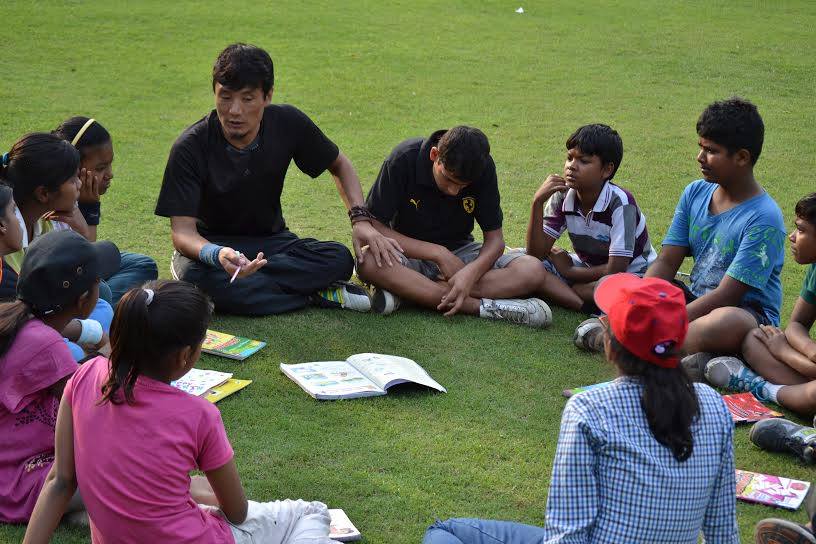
In 2013, Jambay started playing badminton in the park along with some friends. One day, he met a few children who had gathered around, watching the game. When Jambay talked to them, they asked if they too, could play with him. Over three years later, the group of children Jambay coaches in badminton has swelled to around 40. Aside from offering the classes free of charge, Jambay also provides funds for the equipment and tournament fees of his students from his own pocket. The children in Jambay’s classes are from an underprivileged background and cannot afford any kind of private coaching or training. Mothers of most work as domestic help in the colony. Apart from training these children in badminton, he has also started providing classes in the morning to help them in their studies.
5. Shubhendu Sharma left his high paying job as an engineer to plant trees for the rest of his life.

Shubhendu learned about the unique Miyawaki methodology – naturalist Akira Miyawaki’s technique that has managed to regenerate forests from Thailand to the Amazon – to grow saplings. Shubhendu wanted to replicate the model in India, and he started with an experiment in his own backyard in Uttarakhand – growing a lush green forest in a year. In 2011, he started Afforestt, an end-to-end service provider for creating natural, wild, maintenance-free, native forests.
Like this story? Or have something to share? Write to us: [email protected], or connect with us on Facebook and Twitter.
NEW: Click here to get positive news on WhatsApp!
This story made me
- 97
- 121
- 89
- 167
Tell Us More
We bring stories straight from the heart of India, to inspire millions and create a wave of impact. Our positive movement is growing bigger everyday, and we would love for you to join it.
Please contribute whatever you can, every little penny helps our team in bringing you more stories that support dreams and spread hope.



















